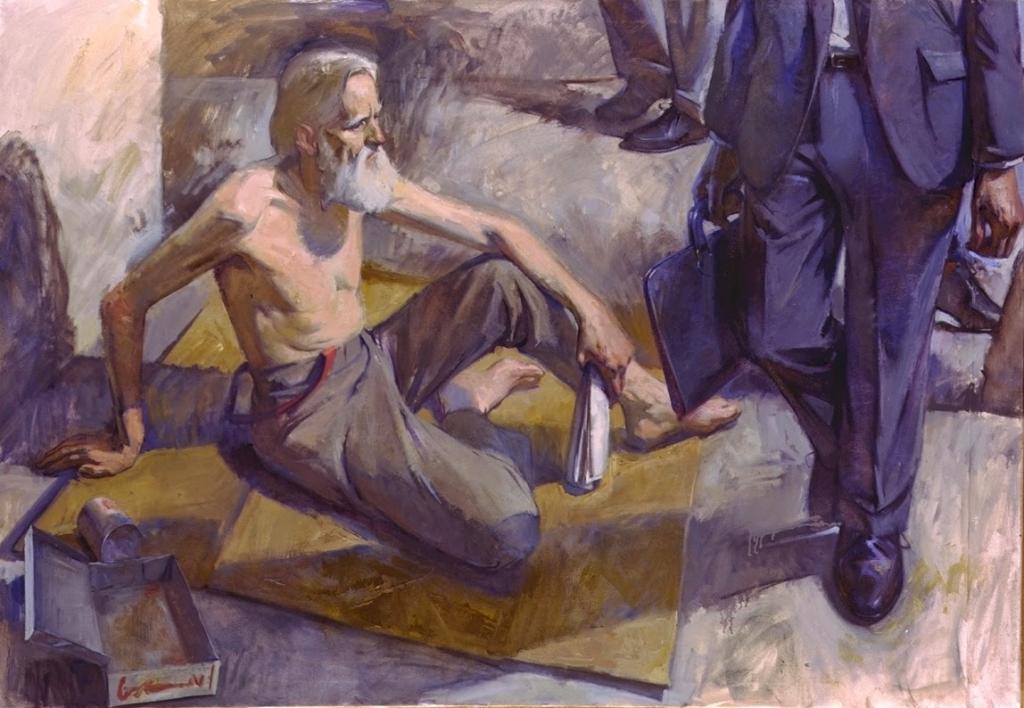Fellow Patheos columnist Dave Armstrong argues that we can not use Jesus’ words about welcoming the stranger to argue for welcoming illegal immigrants. Responding to an argument from veteran pro-life and social justice activist John Cavanaugh-O’Keefe, Armstrong writes:
If Jesus was an open borders and illegal immigrant advocate, the verse would have to be re-written as follows:
for I was hungry and broke into your house and demanded that you give me food, I was thirsty and broke into your house and demanded that you give me drink, I was a stranger and forced my way into your house against your will and you ‘welcomed’ me, because you were compelled to by no one enforcing the laws regarding illegal entry onto private property in your nation.
That’s obviously not what Jesus said or meant.
While certainly Jesus did not say this, the extrapolation that he only meant legal immigrants is problematic because, first of all, this involves projecting anachronistic enlightenment liberal ideas about nation-states, property, and fixed borders back into the time at which Jesus taught. In Imperial-occupied Palestine, under a mix of Roman political law and Jewish religious law, ideas about nation and property were not identical to those of today.
Moreover, even today we recognize a difference in kind between the “right” of a person to hold property, and the “authority” of a nation state to fix boundaries. Ethical primacy is with the person, not with the state. If state authority makes laws that prohibit the genuine well-being of the person, the person is entirely justified in disregarding those laws.
In fact, ethical primacy of the person is such that, in our Catholic moral tradition, it’s recognized even by Thomas Aquinas that it is legitimate for a person who is starving to take and eat food that belongs to another.
But, to go back to Scripture, what does Jesus have to say about property?
“If someone strikes you on one cheek, turn to him the other also. If someone takes your cloak, do not stop him from taking your tunic. Give to everyone who asks you, and if anyone takes what belongs to you, do not demand it back.” (Luke 6:29-30)
Let me clarify that I don’t like this teaching. I don’t like it one bit. I would like Jesus never to have said this. But he did. We’ve been told the Gospel message is hard, and that the path is narrow and difficult. We just typically prefer to point this out when it’s someone else’s hardship we’re excusing.
In this case, however, there’s very little sacrifice asked of us to welcome the stranger. We live in a nation of vast wealth and resources, even if we continue to squander them senselessly. Good stewardship of our wealth – as well as penance for having stolen it from others – would entail using it to give to others the bare essentials they need to stay together as families, to start over after having lost everything.
And since we can do so without even having to give up our last cloak or tunic, without having to give up our homes or pleasant meals or occasional vacations, NOT welcoming the stranger is a cruelty for which we may indeed be, as a nation, harshly judged.
image credit: blogspot.com/-r2mqnYfm_HU/VLM-fo4XBjI/AAAAAAAAUbg/XaSM8Kcpvh8/s1600/homeless.jpg












